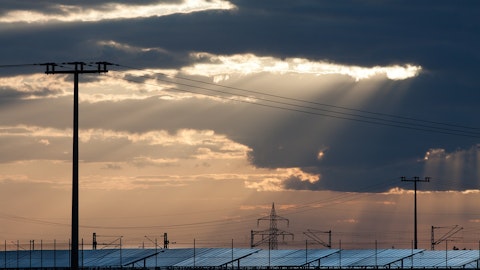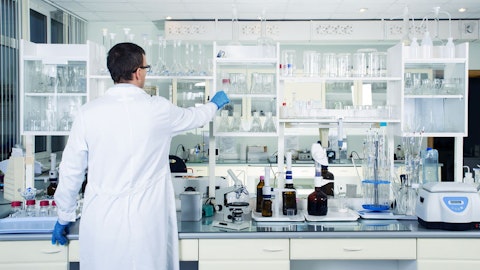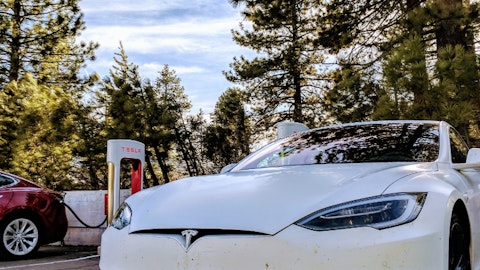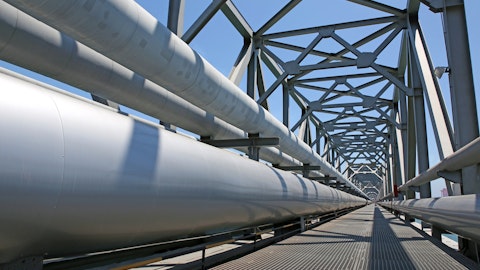Chemicals giant Dow started investing in hydrogen projects way earlier than its competitors. The company reached a deal with GM in 2004 for a joint hydrogen energy project. In 2017, Praxair started a facility to recover hydrogen from Dow Chemical’s ethylene production facilities, and upgrade it into high-purity hydrogen by using a pressure swing adsorption process.
A total of 42 hedge funds tracked by Insider Monkey reported owning stakes in Dow as of the end of the third quarter. The total worth of these stakes is $512.46 million. Richard S. Pzena’s Pzena Investment Management owns 5,759,760 shares of the company, worth $270.99 million.
Here is what Evermore Global said about DOW and DD in its 2020 Q1 investor letter:
“With respect to Corteva, Dow and DuPont, COVID-19 related shutdowns that started in China painted an ominous picture for the global macro landscape, and we exited our positions in these three companies that comprised the former DowDupont (DWDP) beginning in February. Additionally, numerous channel checks we performed indicated that various supply chains were being disrupted and stressed, a poor sign for three companies that are very global in nature.
In retrospect, we remain generally happy with managements execution of many of the fundamental tenets of our original investment thesis in DWDP – the separations and spins were completed on time, the restructuring programs were well executed, and capital allocation across the three companies is much more streamlined and shareholder friendly today than in the past. Unfortunately, big picture issues that started with the U.S. – China trade war and remain today with the global collapse in macroeconomic activity has severely impacted each of the former DWDP companies. We will continue to remain close to each company and could reenter on or more of the aforementioned positions should an opportunity present itself.”
Indiana-based Cummins manufactures and provides services related to engines, fuel systems, controls, air handling, filtration, emission control, electrical power generation systems, and trucks. In November, Cummins and Navistar International said they will work together on the development of a hydrogen-powered Class 8 truck. The project will be partially funded by the U.S. Department of Energy’s Office of Energy Efficiency and Renewable Energy.
Jean-Marie Eveillard’s First Eagle Investment Management is one of the leading hedge funds tracked by Insider Monkey having stakes in Cummins, with 2.11 million shares of the company, as of the end of the third quarter. The net worth of these shares is $445.25 million. We recently talked about CMI in detail in this article. Here is a short excerpt:
“Based on the 3.5GW of Industry Electrolyzer sales, the company’s Cummins Electrolyzer business expects a $400 million revenue in the year 2025 and to provide 100 green trains powered by its fuel cell systems within the same year. Just so you know, 1 kilogram of hydrogen is equivalent to 3 kilograms of diesel in terms of energy. Cummins’ Electrolyzer Efficiency is composed of Alkaline(55%-70%), Proton Exchange Membrane or PEM(65%-80%), and Solid Oxide(75%-90%). Meanwhile, its system efficiency is made up of PEM Fuel Cell(60%), Solid Oxide Fuel Cell(80%), Diesel Engine(50%), and Natural Gas Engine(35%-37%).
According to Cummins, renewable energy costs around $0.05-$0.10 per kWh. In order to produce 1kg of Hydrogen, there must be around 50kWh electrolysis. Roughly around $2.50-$5.00 worth of electricity is required to produce 1kg of hydrogen. On the other hand, the PEM electrolyzer costs $1 million per MegaWatt and equates to about $0.60 per kg of hydrogen. Approximately $3.10-$5.60 per kilogram is needed for the pre-distributed cost of hydrogen and an additional $10 per kilogram for the distribution costs. However, if the energy cost will be lowered to $0.05 per kWh and Capex costs by 50%, this will discount the pre-distributed cost to just around $2-$3 per kg.
This clean energy can be used in the production of steel and as a substitute for diesel engines. As of the moment, the current production of Hydrogen today is 70 million tons. Steel production is estimated to require 47-67 million tons of hydrogen which will roughly cost $300 billion at current prices. Replacing the diesel engines will need around 500 million tons of hydrogen, which costs $2.5 trillion at recent prices.”
Air Products & Chemicals is based in Pennsylvania, and sells gases and chemicals for industrial uses. The company is one of the pioneers in the hydrogen revolution. It started its first hydrogen fueling station in 1993. Air Products stock was upgraded recently by UBS analyst John Roberts to Buy from Neutral with a price target of $310, up from $308.
A total of 49 hedge funds in Insider Monkey’s database held stakes in Air Products as of the end of the third quarter. Aaron Cowen’s Suvretta Capital Management is among these funds, with 470,440 shares of the company, having a total worth of $140.13 million.
Linde is an Ireland-based company which manufactures and sells atmospheric gases, including oxygen, nitrogen, argon, rare gases, helium, hydrogen, electronic gases, specialty gases, and acetylene. Hydrogen remains one of the main focus areas of Linde, as over 160 hydrogen refueling stations are using the company’s technology worldwide. In July, Linde said it will start the world’s first hydrogen refueling station for passenger trains in Bremervörde, Germany.
Linde ranks 2nd in the list of 10 best hydrogen fuel stocks to buy now, as 60 hedge funds tracked by Insider Monkey held stakes in the company entering the fourth quarter. The net worth of these investments is $3.55 billion. Here is what Diamond Hill Capital said about LIN in its 2020 Q1 investor letter:
“We have owned Linde PLC, a global manufacturer of industrial gases in the Large Cap Fund and were owners of Praxair prior to its merger with Linde. We believe Linde is a high-quality business operating in an attractive industry. Management likely has the opportunity to improve margins significantly over the long term, as we believe the legacy Linde businesses were undermanaged. Linde has a strong balance sheet and generates strong free cash flow, which will help to weather near-term recessionary conditions.”
DuPont is a Fortune 500 company that makes chemical and agriculture products. The company plays a key role in the hydrogen fuel cell industry, as it makes proton-conductive membrane that can be used at temperatures of up to 180°C for robust fuel cell systems for efficient separation of hydrogen from gas mixtures. The company started its fuel cells business in 2001, saying that it plans to benefit from the market that would be valued at $10 billion by the end of the decade at that time.
A total of 61 hedge funds tracked by Insider Monkey had stakes in the chemical company as of the end of the third quarter. The total value of these stakes is $3.67 billion.
Please also see 10 Best Solar Energy Stocks To Buy Now, 15 Best Undervalued Stocks To Buy, and 10 Largest Wind Energy Companies In The World.
Follow Insider Monkey on Twitter
Disclosure: None.





